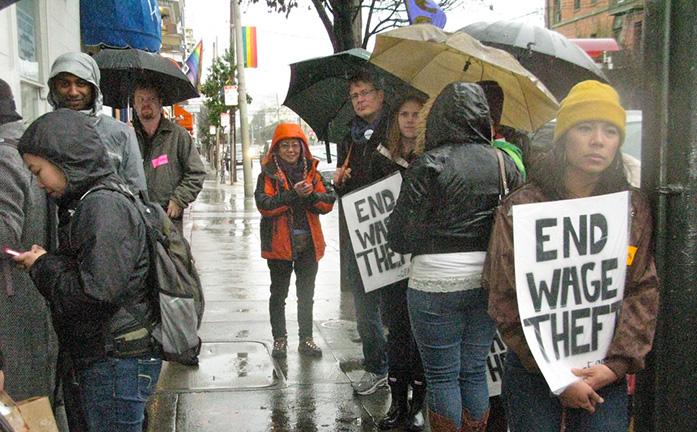By Gage Miskimen
[email protected]
People have heard of workers stealing from their place of business and getting caught but what about a business stealing from their workers?
Wage theft, the illegal practice of not paying workers for all of their work, remains a concern in Iowa. Wage theft includes violating minimum wage laws, not paying overtime, and forcing workers to work off the clock, among other things.
A recent report released by the Iowa Policy Project found the issue has not budged in a few years.
IPP senior research consultant and University of Iowa, professor Colin Gordon, was involved on the report, which served as a follow up to a report done in 2012 that revealed an amount of $600 million annually in wage theft in Iowa.
“I think it’s a serious problem in the state of Iowa for a number of reasons,” Gordon said. “One particular reason is the pattern of the number of people working in temp industries and people who are employed by day laborers.”
The report shows employees who work for temp agencies can have a difficult time keeping track of how much they are getting paid.
“The second problem is that while Iowa has a decent wage-an-hour law, we have no ways of enforcement,” he said. “There are 1.2 million workers in the private sector and one investigator [per that amount].”
Gordon also noted some specific issues with enforcement.
“There are not enough resources. If you really want to make a difference, you go out and audit industries and not just respond to complaints,” he said. “Don’t wait for the complaints to come rolling in. If there were higher penalties, maybe employers would think twice.”
Johnson County supervisor Rod Sullivan, said he agrees that improving enforcement is the way to prevent wage theft.
“Wage theft is done because people think they can get away with it, so there needs to be more enforcement and we need more people in the state working to enforce these laws and certain people just need to be called out.”
Sullivan said he doesn’t think the upcoming minimum wage ordinance will affect wage theft in any way.
“I think the only thing to change what happens is how much is enforced,” he said. “It’s like speeding; the speed limit can be 55 and people will still speed. The speed limit can be raised to 65 and people will still speed. The key is enforcement.”
Iowa Labor Commissioner Michael Mauro said employees are being denied workers comp as well as benefits. He also said the state is also losing money because of wage theft.
“I think it’s broken down in two areas: people who don’t get paid for the jobs they are doing and the other is misclassification where people are working in jobs classified as an independent contractor when they’re actually an employee,” he said.
He also said he questions if the amount of investigators is enough.
“You can always use more people out there and in Iowa. We have two investigators and we try to reach out to the people through public speaking and the Internet to let people know that there is an avenue,” Mauro said. “We could always use more people. There is no business out there that can’t use more people.”







